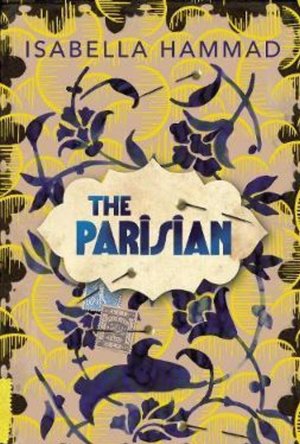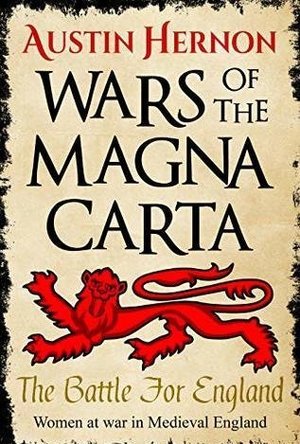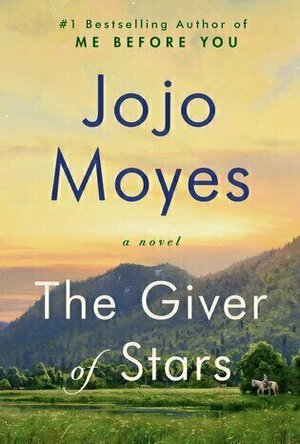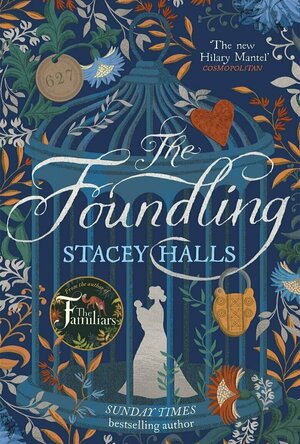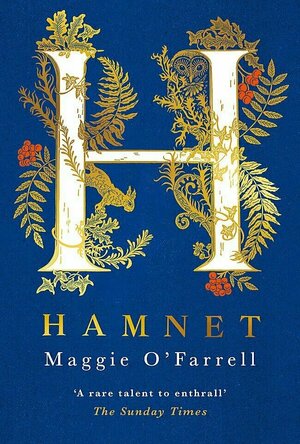Search
Search results
ClareR (5596 KP) rated The Parisian in Books
May 30, 2019
Compelling historical fiction
Midhat Kamal arrives in Montpellier in 1914 to study at the University to become a doctor. He falls in love with his University professor landlords daughter, Jeanette, but he becomes disillusioned with the family, and leaves to continue studying in Paris. He lives here during the war, and becomes friends with other Arabic men during a tumultuous time in the Middle East.
When Midhat returns home to Nablus, he is expected to conform to his fathers wishes, marry a woman from a good Muslim family, and work for the family business. He is thereafter known as The Parisian to those who don’t really know him, because of his style of dress and his outlook on life.
Politics soon begin to affect every part of his life, as the colonial powers of Britain and France flex their muscles. Their unwillingness to learn histories and the way people actually want to live cause untold problems, which actually we still see the consequences of today.
I can see that some may struggle with the French and Arabic peppered through the dialogue (I don’t speak Arabic), but I do think it was used in such a way that I didn’t lose track of what was happening, and it lent some credibility to the story. Midhat slips in french words to his speech when something surprises him, or he feels strongly about something. His second language has become a part of him. Endearments are usually in Arabic as well (it took a little while for me to realise what they were, and there are other words used that aren’t just endearments, I’m sure!).
This is a beautifully told story. It’s hard to read in places - history isn’t always very pretty. But I think it’s important to learn about the past in order to understand the present and hopefully learn from past mistakes.
Many thanks to NetGalley and the publisher for my copy of this book to read and honestly review.
When Midhat returns home to Nablus, he is expected to conform to his fathers wishes, marry a woman from a good Muslim family, and work for the family business. He is thereafter known as The Parisian to those who don’t really know him, because of his style of dress and his outlook on life.
Politics soon begin to affect every part of his life, as the colonial powers of Britain and France flex their muscles. Their unwillingness to learn histories and the way people actually want to live cause untold problems, which actually we still see the consequences of today.
I can see that some may struggle with the French and Arabic peppered through the dialogue (I don’t speak Arabic), but I do think it was used in such a way that I didn’t lose track of what was happening, and it lent some credibility to the story. Midhat slips in french words to his speech when something surprises him, or he feels strongly about something. His second language has become a part of him. Endearments are usually in Arabic as well (it took a little while for me to realise what they were, and there are other words used that aren’t just endearments, I’m sure!).
This is a beautifully told story. It’s hard to read in places - history isn’t always very pretty. But I think it’s important to learn about the past in order to understand the present and hopefully learn from past mistakes.
Many thanks to NetGalley and the publisher for my copy of this book to read and honestly review.
BookwormMama14 (18 KP) rated The Lost Heiress (Ladies of the Manor, #1) in Books
Jan 2, 2019
A lost heiress has been found, but the past brings a danger that will threaten all she holds dear.
With a mysterious past, Brooke Eden recruits her closest friend, Justin Wildon, to find who her true family is. She has been raised in Monaco by the Grimaldi family, but she knows that they are not her true family. She is shocked to discover that she is a long lost daughter of The Earl of Whitby and even more surprised that her father receives her with open arms. Although, the rest of the family takes a little more convincing. Horrors of her mother's death haunt Brook and there are many secrets that have to be uncovered. When greed and lust for wealth and power threaten Brook's life, her faith keeps her strong. Will the secrets of the past be revealed? And will Brook return home after being lost for a second time?
"But God does not just instruct us to forgive - He instructs us to trust. To trust that, even though life hurts us, He will take care of us."
Roseanna White had me completely captivated from the first page of The Lost Heiress. Set in 1910, during the Edwardian Period it was a new experience for me. With society rapidly changing and new inventions around every corner, it was wonderful to see it through Brook Eden's eyes. I admire her courage and strength throughout this story. She is someone that I would love to know and to follow on one of her harebrained ideas. She can be rash and impulsive, but her faith is evident. We could all benefit by following her example of putting our trust in the Lord, even when the world seems to be crumbling down around us. If you are a fan of Downton Abbey and love a little mystery with your historical fiction, you will quickly loose yourself between the pages of this book.
I received a free digital copy of The Lost Heiress from Bethany House Publishers through NetGalley in exchange for my honest review.
With a mysterious past, Brooke Eden recruits her closest friend, Justin Wildon, to find who her true family is. She has been raised in Monaco by the Grimaldi family, but she knows that they are not her true family. She is shocked to discover that she is a long lost daughter of The Earl of Whitby and even more surprised that her father receives her with open arms. Although, the rest of the family takes a little more convincing. Horrors of her mother's death haunt Brook and there are many secrets that have to be uncovered. When greed and lust for wealth and power threaten Brook's life, her faith keeps her strong. Will the secrets of the past be revealed? And will Brook return home after being lost for a second time?
"But God does not just instruct us to forgive - He instructs us to trust. To trust that, even though life hurts us, He will take care of us."
Roseanna White had me completely captivated from the first page of The Lost Heiress. Set in 1910, during the Edwardian Period it was a new experience for me. With society rapidly changing and new inventions around every corner, it was wonderful to see it through Brook Eden's eyes. I admire her courage and strength throughout this story. She is someone that I would love to know and to follow on one of her harebrained ideas. She can be rash and impulsive, but her faith is evident. We could all benefit by following her example of putting our trust in the Lord, even when the world seems to be crumbling down around us. If you are a fan of Downton Abbey and love a little mystery with your historical fiction, you will quickly loose yourself between the pages of this book.
I received a free digital copy of The Lost Heiress from Bethany House Publishers through NetGalley in exchange for my honest review.
ClareR (5596 KP) rated The Battle For England: Women at war in Medieval England (Wars of the Magna Carta #1) in Books
Jan 22, 2019 (Updated Jan 22, 2019)
Women in medieval England
This is a book packed with history, told from the points of view of a priest, a female castellan, a female Keeper of the Kings Forest and a Knight (he gets about a chapter). It must have been very unusual for there to be female Castellans and Keepers of the Forest in a time where a womans primary function was to get married and give birth to sons who could inherit a title. The women in this story seem to have to prove themselves constantly to outsiders - the people who live under their rule don't need to see the proof, they have experience of how good these two women are at their jobs.
The years after the Magna Carta was signed were very unsettled. King John had problems with Phillip of France, losing lands in France and allowing the French in to England to take over castles and land by force. With the death of John, his 9 year old son succeeds him and William Marshall becomes his Regent. I have read other books about William Marshall, and what I read here seemed to be in keeping (most writers seem to be in agreement at the kind of man he must have been).
Nicolaa of Lincoln and Matilda of Laxton were not weak females. I really liked how they were portrayed, and I enjoyed reading the chapters from their points of view as it showed how strong and independent they were. I really liked Father Barnards chapters too. It gave an objective look at how these two women reacted in their situations.
I am a real sucker for historical fiction, and I feel that this was a really well researched novel. There was nothing overly sensationalised, which made it more believable for me. I will probably read the next book in this series. I'm interested to see if there is more from these two impressive women.
Many thanks to Sapere Books for a copy of this book to read and review.
The years after the Magna Carta was signed were very unsettled. King John had problems with Phillip of France, losing lands in France and allowing the French in to England to take over castles and land by force. With the death of John, his 9 year old son succeeds him and William Marshall becomes his Regent. I have read other books about William Marshall, and what I read here seemed to be in keeping (most writers seem to be in agreement at the kind of man he must have been).
Nicolaa of Lincoln and Matilda of Laxton were not weak females. I really liked how they were portrayed, and I enjoyed reading the chapters from their points of view as it showed how strong and independent they were. I really liked Father Barnards chapters too. It gave an objective look at how these two women reacted in their situations.
I am a real sucker for historical fiction, and I feel that this was a really well researched novel. There was nothing overly sensationalised, which made it more believable for me. I will probably read the next book in this series. I'm interested to see if there is more from these two impressive women.
Many thanks to Sapere Books for a copy of this book to read and review.
Micky Barnard (542 KP) rated The Giver of Stars in Books
Nov 3, 2019
A quietly emotional story
I should know…know that when I read a Jojo Moyes book that it’s going to pack an emotional punch but with this blurb, I just didn’t see it coming. THE GIVER OF STARS had me invested quickly and feeling like a family member to the librarian sisterhood, so that when things happened, I felt devastated and scared to read on. The themes of misogyny, racism and feminism made this both emotional and empowering.
The context of reading, teaching poor and downtrodden women, children and men to read through the distrubution of books was in the background but it also powerful to observe. These women on their riding rounds also comforted the sick, grieving and took on the role of friends, confidantes and substitute mother figures.
I didn’t expect this book to be unputdownable, but it was as Moyes made the mundane work of Alice, Margery, Izzy and Beth’s lives totally readable and absorbing. Alice was the main protagonist, an English newly-wed, a little prissy but a genuinely sweet woman. The life she found in Kentucky was not at all what she expected and I tore my hair out over her and Bennett’s relationship. There were some revolting men in this book but then there were also some fantastic characters in Fred and Sven, they were the light in my reading and this book.
There was a second supporting protagonist in Margery and she really captured my heart. I loved her rebelliousness, her unconventional ways and willingness to be different. Her later storyline had me distraught, sad and prone to weeping. I just did not know where this book was going to end, there were so many possibilities.
I have come away from this read inspired. Jojo Moyes took me on a journey with this story and I am all the richer for it. This is historical women’s fiction at it’s best and I will remember this book for years, I am sure.
The context of reading, teaching poor and downtrodden women, children and men to read through the distrubution of books was in the background but it also powerful to observe. These women on their riding rounds also comforted the sick, grieving and took on the role of friends, confidantes and substitute mother figures.
I didn’t expect this book to be unputdownable, but it was as Moyes made the mundane work of Alice, Margery, Izzy and Beth’s lives totally readable and absorbing. Alice was the main protagonist, an English newly-wed, a little prissy but a genuinely sweet woman. The life she found in Kentucky was not at all what she expected and I tore my hair out over her and Bennett’s relationship. There were some revolting men in this book but then there were also some fantastic characters in Fred and Sven, they were the light in my reading and this book.
There was a second supporting protagonist in Margery and she really captured my heart. I loved her rebelliousness, her unconventional ways and willingness to be different. Her later storyline had me distraught, sad and prone to weeping. I just did not know where this book was going to end, there were so many possibilities.
I have come away from this read inspired. Jojo Moyes took me on a journey with this story and I am all the richer for it. This is historical women’s fiction at it’s best and I will remember this book for years, I am sure.
ClareR (5596 KP) rated The Foundling in Books
Jan 14, 2020
Gothic historical fiction - just my cup of tea!
The Foundling is set in Georgian London, and is packed full of secrets. No-one in it appears to be telling the truth.
Bess Bright, a hawker of shrimps on London’s streets, leaves her newborn, Clara, at the London Foundling Hospital with every intention of reclaiming her when she is older. When Bess does return having saved the money to pay for the care her daughter has received over the last six years, it’s to discover that Bess Bright has already claimed her baby the day after she left her. So someone has taken her daughter.
In a much wealthier part of London, a widow is persuaded by her doctor to take on a nursemaid for her daughter. The widow rarely leaves her home, and doesn’t let her daughter play outside. The child’s only time outside is the journey to church at the Foundling Hospital every Sunday. The new nursemaid, along with the doctor, convince the widow that she should allow the child some times outside to play, and some fresh air.
This is just the tip of the iceberg though. The widow is a complex, damaged character who tries to hide from her past - but as secrets have a habit of doing, hers catch up with her. The nursemaid is instrumental in this.
The descriptions in this book are all so vivid - I was transported into the contrasting world of Georgian London and those who lived in poverty living alongside (streets away from) those who lived with unmentionable amounts of money. The oppression in the widows household was overwhelming: claustrophobic, even.
I loved everything about this book - I loved the gothic, suspense-filled atmosphere, and spent a large part of the book with my heart in my mouth!
Another wonderful book by Stacey Halls, and one I’d highly recommend reading!
Many thanks to The Pigeonhole for the reading AND the listening experience (I loved the narrators on the audio book!), and Stacey Halls for reading along, too!
Bess Bright, a hawker of shrimps on London’s streets, leaves her newborn, Clara, at the London Foundling Hospital with every intention of reclaiming her when she is older. When Bess does return having saved the money to pay for the care her daughter has received over the last six years, it’s to discover that Bess Bright has already claimed her baby the day after she left her. So someone has taken her daughter.
In a much wealthier part of London, a widow is persuaded by her doctor to take on a nursemaid for her daughter. The widow rarely leaves her home, and doesn’t let her daughter play outside. The child’s only time outside is the journey to church at the Foundling Hospital every Sunday. The new nursemaid, along with the doctor, convince the widow that she should allow the child some times outside to play, and some fresh air.
This is just the tip of the iceberg though. The widow is a complex, damaged character who tries to hide from her past - but as secrets have a habit of doing, hers catch up with her. The nursemaid is instrumental in this.
The descriptions in this book are all so vivid - I was transported into the contrasting world of Georgian London and those who lived in poverty living alongside (streets away from) those who lived with unmentionable amounts of money. The oppression in the widows household was overwhelming: claustrophobic, even.
I loved everything about this book - I loved the gothic, suspense-filled atmosphere, and spent a large part of the book with my heart in my mouth!
Another wonderful book by Stacey Halls, and one I’d highly recommend reading!
Many thanks to The Pigeonhole for the reading AND the listening experience (I loved the narrators on the audio book!), and Stacey Halls for reading along, too!

The Sabotage Diaries: The True Story of a Daring Band of Allied Special Forces and Their Covert Operations in Nazi-Occupied Greece
Book
Based on the wartime diaries of Allied soldier and saboteur Tom Barnes, this account of thrilling...
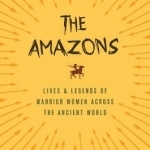
The Amazons: Lives and Legends of Warrior Women Across the Ancient World
Book
Amazons--fierce warrior women dwelling on the fringes of the known world--were the mythic...
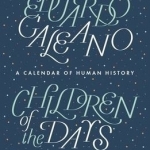
Children of the Days: A Calendar of Human History
Book
From Eduardo Galeano, one of Latin America's greatest living writers, author of the Memory of Fire...
Kristy H (1252 KP) rated The Zig Zag Girl in Books
Jul 8, 2021
Captivating mystery set in the 1950s
When DI Edgard Stephens sees the body of a girl, cut into three, it reminds him of a magic trick: the Zig Zag Girl. His friend, Max Mephisto, used to perform it. Max and Edgar served in the war together as part of a secret unit called the Magic Men. Max still performs, but when another person turns up dead, he reluctantly helps Edgar look into the deaths--especially since this one seems tied to magic as well. Both men feel like the murders may be linked to their war days, and if they're not careful, their whole unit could be in danger.
This was the twenty-sixth (and final!) book in my #atozchallenge! I challenged myself to read a book from my shelves that started with each letter of the alphabet.
"'The way the body was cut into three, each part put into a black box, it reminded me of a magic trick. One you used to do before the war.'"
I absolutely adore Elly Griffiths, but I don't read a lot of historical fiction, so I've always kept this series in my back pocket. When I needed a "Z" book for my challenge, this seemed like a perfect fit. No surprise, really, but this was an easy and interesting read. Griffiths is such a good writer, and this is written in what I've come to think of as Elly's style--a fun, enjoyable form, where she captures the essence of each of her characters so well.
The book is filled with magic and war stories. The mystery is quite captivating--it's a good case, which draws you into the story. And Edgar, Max, and their crew are very compelling. I enjoyed the themes of friendship and wartime, plus the surprising vulnerability that shone through in both Max and Edgar. I would certainly read the next book in the series. 4+ stars.
This was the twenty-sixth (and final!) book in my #atozchallenge! I challenged myself to read a book from my shelves that started with each letter of the alphabet.
"'The way the body was cut into three, each part put into a black box, it reminded me of a magic trick. One you used to do before the war.'"
I absolutely adore Elly Griffiths, but I don't read a lot of historical fiction, so I've always kept this series in my back pocket. When I needed a "Z" book for my challenge, this seemed like a perfect fit. No surprise, really, but this was an easy and interesting read. Griffiths is such a good writer, and this is written in what I've come to think of as Elly's style--a fun, enjoyable form, where she captures the essence of each of her characters so well.
The book is filled with magic and war stories. The mystery is quite captivating--it's a good case, which draws you into the story. And Edgar, Max, and their crew are very compelling. I enjoyed the themes of friendship and wartime, plus the surprising vulnerability that shone through in both Max and Edgar. I would certainly read the next book in the series. 4+ stars.
Erika (17788 KP) rated Hamnet in Books
Jan 10, 2021
Hamnet was the 1st book I read in 2020 that was named after the son, but, in reality, the entire book is about the mother.
Hamnet is the story of an little, unknown playwright's son, who died of the plague. Just kidding, the playwright is obviously Shakespeare, but he is never named. Which is fine with me, he wasn't the focus.
Nothing much is really known about Hamnet, the author did some extensive research, and created the series of events. I thought they were all plausible, and I always appreciate a heavily researched historical fiction novel.
In truth, the focus of the novel is on Anne Hathaway, called Agnes in this novel. It's possible her true name was Agnes, rather than Anne. Now, I had a slight problem with the character of Agnes in general. This was the major negative in the book for me, I feel as though the woman in the woods, is she or isn't she a witch situation is getting overplayed way too much. Now, I see it as the equivalent as the manic pixie dream girl. I understand this woman of the woods trope is to empower the female characters, but it's just too familiar at this point.
I feel mostly that every book I read is predictable, when you read over 100 books a year, it's hard not to predict the ending. Is it necessarily a bad thing? Of course it's not, but that coupled with the manic pixie woman of the woods is why I can't rate this higher than good.
I have to add that one of my favorite parts, that was probably really unnecessary, was the journey of the plague-carrying flea. I thought it was amusing, and kind of odd.
I can definitely see why this book was up for prizes, and I'm sure to the casual reader, it was better than good.
Hamnet is the story of an little, unknown playwright's son, who died of the plague. Just kidding, the playwright is obviously Shakespeare, but he is never named. Which is fine with me, he wasn't the focus.
Nothing much is really known about Hamnet, the author did some extensive research, and created the series of events. I thought they were all plausible, and I always appreciate a heavily researched historical fiction novel.
In truth, the focus of the novel is on Anne Hathaway, called Agnes in this novel. It's possible her true name was Agnes, rather than Anne. Now, I had a slight problem with the character of Agnes in general. This was the major negative in the book for me, I feel as though the woman in the woods, is she or isn't she a witch situation is getting overplayed way too much. Now, I see it as the equivalent as the manic pixie dream girl. I understand this woman of the woods trope is to empower the female characters, but it's just too familiar at this point.
I feel mostly that every book I read is predictable, when you read over 100 books a year, it's hard not to predict the ending. Is it necessarily a bad thing? Of course it's not, but that coupled with the manic pixie woman of the woods is why I can't rate this higher than good.
I have to add that one of my favorite parts, that was probably really unnecessary, was the journey of the plague-carrying flea. I thought it was amusing, and kind of odd.
I can definitely see why this book was up for prizes, and I'm sure to the casual reader, it was better than good.
